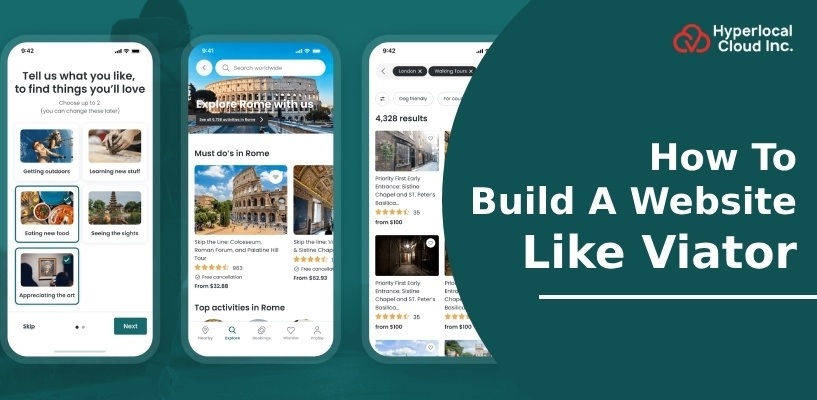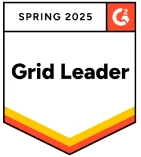How To Build A Website Like Viator

Today, the craze of online traveling marketplaces among people is massive. Various marketplaces are in demand; and one of the most popular ones is “Viator”. From booking tours to experiencing amazing activities, the platform caters to the needs of a diverse audience. Following the suite, businesses are stepping toward creating a similar marketplace with impeccable features and design.
Before delving in, let’s first get a basic understanding of Viator, its features, and its revenue model.
What Is Viator Website And How Does It Work?
Viator is an online destination booking platform that helps individuals smoothly search for their favorite destinations and amplify their traveling experience. The platform offers 24/7 customer support, free cancellation at no additional cost, and rewards with its fantastic loyalty programs.
Users can browse various options to choose their top destinations with the desired dates. The selection is made based on comparing charges and feedback. On the other hand, the sellers can list their offerings to a larger audience. Moreover, they get access to the platform’s vast network of travelers, which they can use to accelerate their sales and online visibility.
Ready To Build Website Like Viator?
Must-Have Features Of a Website Like Viator
A site like Viator offers diverse attributes categorically specified as the customer, the admin and the service providers. Here, we have broken down the essentials that must be integrated into the different website components.
Intuitive Dashboard
Provides the summary and overview of essential key metrics such as number of bookings, revenue, and user stats.
User Management
Manages profile and grants permission access for customers and service providers.
Listing Management
Helps add, edit, and delete tours/activities and create categories & tags for listings.
Booking Management
Allows the admin to handle bookings, cancellations, and changes without any hassle.
Payment Processing
Enables admin to have seamless payment processing concerning refunds and commissions.
Reporting and Analytics
Fetch valuable insights, gauge performance metrics, and, based on that, generate sales and user engagement reports.
Content Management
Streamlines all the website content, including travel blogs, FAQs, videos, and other promotional materials.
Search and Filtering
Allows users to search for activities and tours by filtering by location, date, type, and ratings.
Online Booking
Enables a seamless and quick booking system with built-in calendar integration and payment gateways.
Reviews and Ratings
Helps customers leave reviews on the platform and read others’ reviews to make a better choice.
Personalized Recommendations
Offers activity suggestions based on the user’s interest and behavior to help them make superior decisions.
Account Management
Allows the display of bookings, preferences, and payment methods for customers’ convenience.
Listing management
Enables the service providers to add, delete, and update the listings for a tour/activity.
Booking management
Helps in viewing, accepting, and declining bookings depending upon the availability.
Performance Metric
The intuitive dashboard reflects performance in terms of bookings, revenue, and customer ratings.
Communication Tools
This built-in feature helps better communicate with customers by addressing and resolving their queries.
Payment Tracking
With this feature, the service providers can view their payments received and manage financial information.
Review Management
Allows them to view the feedback and reply to their customer reviews to improve their quality of services.
Campaign Management
Enables the service providers to create various promotions, offers, and deals for their listings.
Experience The Extraordinary Viator Like Website Development
Website Like Viator: Key Development Process
Research & Planning
The first step is to study and analyze the competition and target audience. Our team will decide what features your website needs to include, including booking systems, user profiles, and payment gateways. Establish clear objectives for the project and create a timeline.
Wireframing
We will help plan the wireframes to structure the website’s layout and how it navigates as a user interface. Since this stage of your process is about user experience and navigation, it has to be intuitive.
Design
During this stage, color palettes, buttons, and icons are selected to enhance aesthetics and reflect the brand’s unique identity. The website design is made so that it is responsive for all devices.
Development
The website is developed using front-end and back-end technologies. APIs for booking, payment, and user management will be included. The website should be fast, secure, and scalable.
Testing
The developed website undergoes different types of testing, such as functionality, usability, or performance. Our QA team assists in bug fixing on different devices and browsers.
Launch
The error-free website is deployed on a dedicated hosting platform and launched for public use. Moreover, the marketing strategies are designed to successfully launch and engage with your audience.
Post-launch Support
At this stage, the website’s performance and user reviews are tracked. When technical glitches arise, our tech support team perfectly resolves them to ensure the website’s long-term success.
Benefits Associated With A Website Like Viator
For Customers
Easy Planning: A website like Viator helps customers to easily search, find destinations, and wishlist them anytime, anywhere.
Free Cancellation: In case of a change in plans, the customers will get a full refund if they cancel at least 24 hrs in advance.
Reserve Now & Pay Later: Helps users reserve the spot in advance and pay anytime they want.
Explore By Destination: Helps customers discover as many locations as they want by having a walk-in tour through AI-powered platforms.
For Businesses
Multiple Income Sources: The provision of information and access to various tours and activities gives businesses the opportunity to generate money through commissions, ads, and premium listings.
Data Insights: Businesses can benefit from adjusting their offers and refining their marketing strategies based on analysis of user behavior and preferences.
Customer Loyalty: Unique and brilliant experiences are likely to bring repeat business and customer loyalty, which is crucial in the travel sector.
Networking Opportunities: Collaboration with businesses, tour operators, or travel agencies in your locality to leverage their services for enhanced offers and broader networking opportunities.
Brand Authority: Creating a fantastic platform will enable businesses to establish themselves as a leader in travel and experiences for users and other partners.
Scalability: With an increasing demand, businesses can easily expand their offerings or markets without significant infrastructure changes.
Global Market Reach: Such a site opens the space for businesses to take in the world’s fast-growing tourism and experience economy.
Turn Your Website Like Viator Dreams into Reality!
How Does Viator Make Money?
Viator earns revenue mainly through commissions for taking a percentage whenever people buy tours or other activities. The platform connects travelers with local experiences while monetizing through bookings and partnerships.
Commission Model
The company’s operation involves signing an agreement with tour and activity providers; every time Viator features an activity for sale on the site, and when customers purchase it, the website takes a percentage of the deal as a commission.
Listing Fees
Providers can list their services on the website in exchange for a listing fee that generates revenue.
Advertising
A website like Viator also earns revenue by placing advertisements for tour providers seeking its services on its website.
Upselling and Packages
They sometimes offer bundled experiences or upsell additional services, which can also contribute to their revenue.
How Much Does It Cost To Build a Website Like Viator?
The development costs start at $10k, depending on the level of customization. Check out the factors influencing the cost;
- Latest tech stacks
- Integrated features
- Website complexity
- Location of the developers
- UI/UX design
- Size of the development firm
- Development process
Schedule a meeting with our experts and get started with your development journey!
Hire Hyperlocal Cloud As Your Reliable Partner!
Hyperlocal is a leading website development company offering top-notch services to its clients. Hire our vetted developers and build bug-free, user-friendly platforms. The following points give us a competitive edge over our competitors.
- Top-Level Expertise
- Dedicated Team
- Quality Services
- On-Time Product Delivery
- Outstanding Communication Skills
- Free One-Time Consultation
- 24*7 Technical Support
Talk to us today and develop a fully functional and feature-rich platform.





